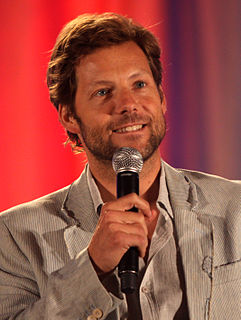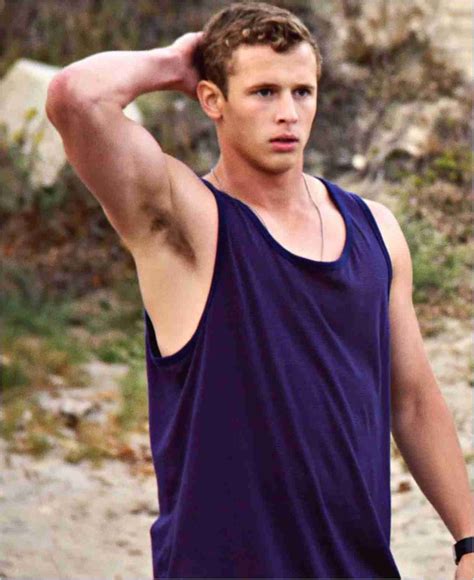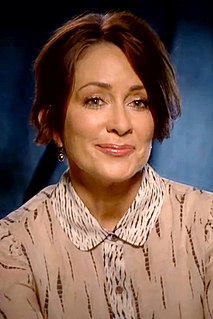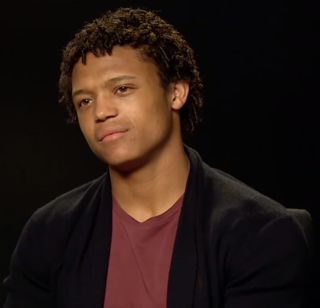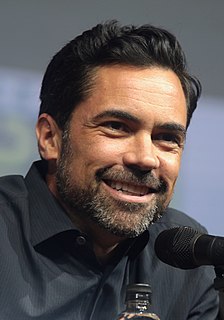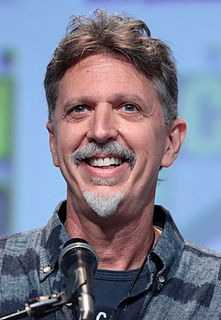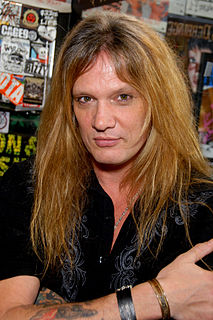Цитата Джейми Бамбера
Мое единственное колебание после «Закона и порядка» заключалось в том, что я не хотел участвовать в такой суперсухой процедуре. Я нашел это удовлетворительным, но очень сложным, потому что все серии были одинаковыми. Это просто с этим шоу.
Связанные цитаты
Я только что закончил эпизод нового шоу под названием «Century City». Это как в «Законе и порядке», действие которого происходит в будущем, и у меня там очень драматическая роль. Я должен рыдать, плакать и плакать. Это было очень тяжело. Когда все было готово, я подумал: «Хорошо, пора смотреть «Губку Боба!»».
Я был в своей доле сетевых драм и комедий, и иногда проблема в сети заключается в том, что они сосредоточены на том, чтобы сделать шоу верным тому жанру, в котором оно находится. Если вы снимаетесь в драме, она должна быть процедурной, она лучше соответствует всем требованиям процедурного шоу, и вам лучше оставить эти эпизоды независимыми, поэтому, если я смотрю сериал через семь лет, поскольку он транслируется по какому-то другому кабелю сети, мне не нужно знать, что произошло до или после эпизода. Если вы играете в комедии, все должно быть забавным, дурацким и сумасбродным.
Когда мы пришли в сеть, это было очень интересное время, когда «Портландия» только что вышла в эфир и была очень, очень успешной. Я думаю, что у людей были ожидания от Comedy Bang размером с Портландию! Взрыв! , особенно после того, как первую серию посмотрело довольно большое количество людей. Я помню, как получил рейтинги после первого эпизода, и сеть была в восторге от этого. А потом вторая серия сильно захлебнулась. Мол, никто не смотрел. Это было громкое: «Эй, куча людей попробовала ваше шоу, и все они его ненавидят!»
Я участвовал в другом процедурном сериале «Раскрытое дело» в течение семи лет и, безусловно, уважал наследие «Закона и порядка», хотя видел лишь несколько эпизодов. Быть отцом означало, что на самом деле я, вероятно, знал больше о Доре и Диего. Но я посмотрел шоу свежим взглядом и не собирался приходить с кучей багажа.
Даже самые преданные зрители шоу будут смотреть только одну из трех серий. Как человеку, который делал телевидение, мне всегда было трудно в это поверить, потому что вы хотите верить, что люди, которым нравится ваше шоу, смотрят каждую серию, но по статистике люди, которые считали себя самыми преданными зрителями, смотрели только одну из трех.
Нам нужна свобода перемещения сцен из эпизода в эпизод. И нам действительно нужна свобода писать от эпизода к эпизоду, потому что, когда он начинает приходить и когда вы начинаете смотреть на него как на пятичасовой фильм, точно так же, как вы смотрели бы на двухчасовой фильм, перемещайте сцена с первых 30 минут до, может быть, 50 минут. В потоковом сериале вы теперь были бы в другом эпизоде. Это так сложно, и мы все еще используем правила, которые были созданы для эпизодического телевидения, что мы действительно пытаемся понять это.
